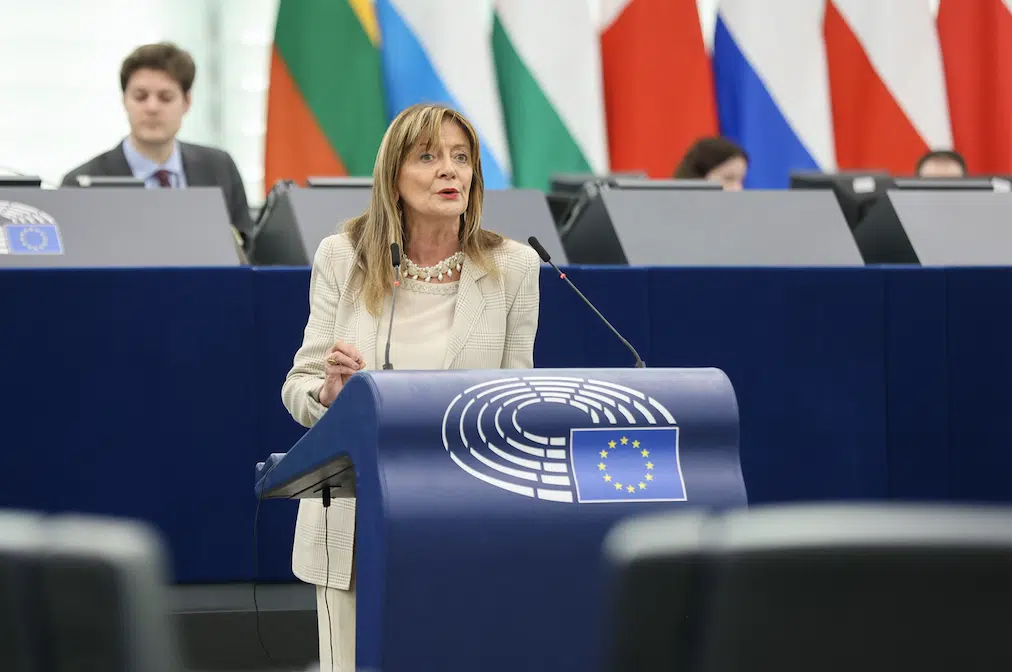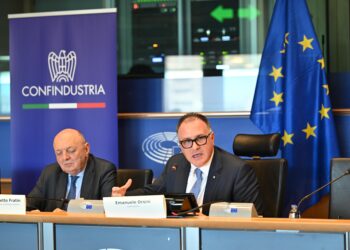Brussels – Games ended on one of the files that has become emblematic of the progressive erosion of support for the European Green Deal, particularly in Italy. In the last plenary session of the legislature, the EU Parliament gave its blessing (with 476 votes in favour, 129 against and 24 abstentions) to the EU regulation on packaging and packaging waste. A measure that “defends Italian excellence,” claims the text’s rapporteur, Democrat Patrizia Toia. The Italian Farmers Confederation (CIA) takes a different view, hoping for “a fairer solution” with the next Parliament.
The rules, the result of the hard-earned provisional agreement reached last March 4 with the EU Council, introduce reduction targets for packaging of 5 per cent by 2030, 10 per cent by 2035 and 15 per cent by 2040. They also particularly require EU countries to reduce plastic packaging waste.
As of 2030, several types of single-use plastic packaging will be banned, including packaging for fresh, unprocessed fruits and vegetables, for food and beverages consumed in bars and restaurants, and for single-serving items (e.g., condiments, sauces, coffee creamers, and sugar). The ban will also apply to small disposable packaging used in hotels and plastic bags made of ultralight material below 15 microns.
To avoid harmful health effects, the text bans the use of so-called “eternal pollutants,” namely perfluoroalkyl substances (PFAS), above certain thresholds in food-contact packaging.
Italy against reuse targets and ban on single-use plastic
Packaging has been one of the most sensitive pieces of European legislation for the government and several Italian interest groups, with intense pressure from Italian delegations in both the Parliament and the Council to rediscuss recycling and reuse targets in particular. The contrast was overcome in the final text, with the option for member states to grant derogations to operators in the sectors involved if individual packaging materials exceeded the recycling targets set by Brussels by at least 5 per cent.
In addition, Italy was granted an exclusion from the reuse requirements for take-away, cardboard, beverages such as milk and other highly perishable ones, wines, and other alcoholic drinks, and a horizontal exemption for packaging materials, provided that there are high recycling rates.
Packaging regulation, Italian reactions. The Lega opposes another “eco-madness”
“The final approval of the packaging regulation is good news for Europe and for Italy,” which “reconciles environmental goals with the interests of the economy,” exulted Patrizia Toia, claiming the role played to “defend and enhance the excellence of the Italian recycling industry and the supply chains of sustainable materials.” A victory immediately downplayed by the national president of CIA, Cristiano Fini, while admitting that on the regulation, “there has been a great work of the whole Italian system.” Fini denounces the criticality of the ban on the use of single-use plastic packaging for fruit and vegetables under 1.5 kg, which “does not support the sector either on the front of expenses or on the guarantee of better preservation of the product, as well as for the objective of combating food waste.”

On the warpath is the Lega, the only Italian party that again today opposed en bloc—as well as the European political group to which it belongs, Identity and Democracy—the approval of the regulation. According to CLega’s MEP Silvia Sardone, the new packaging regulations remain “highly penalizing for the Italian companies; they are part of those “green ideological measures with which the EU has characterized this mandate, amid eco-madness and serious damage to entire sectors.”
Before being published in the EU Official Journal and entering into force, the agreement must be formally approved by a qualified majority of member states in the EU Council.
English version by the Translation Service of Withub









